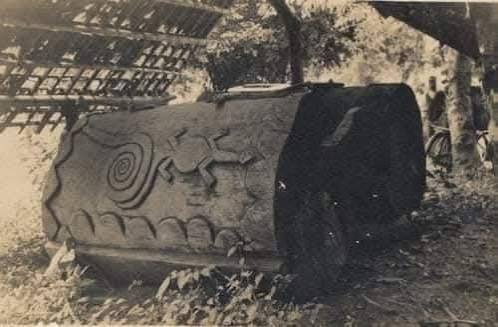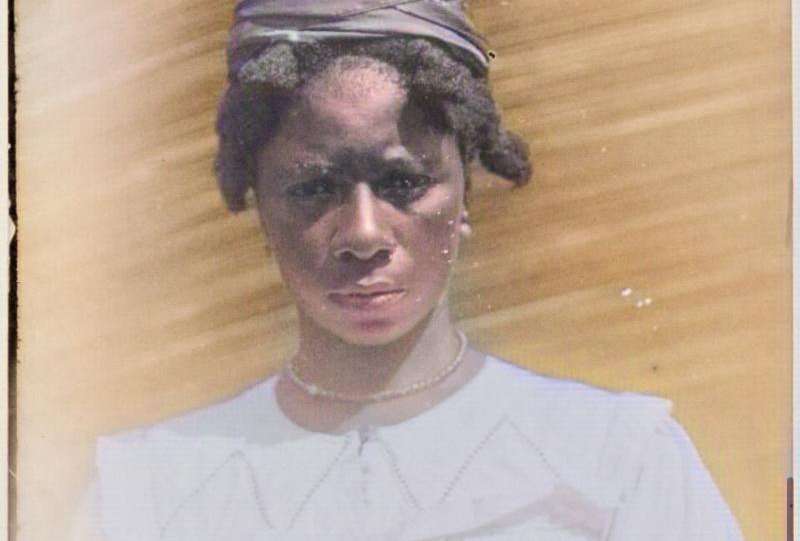The Legacy of Emotan: Benin’s Beloved Peacemaker and Trader.
The history of the Kingdom of Benin is often told through the exploits of its powerful warrior-kings, the Obas. However, no figure embodies the moral heart and spiritual resilience of the Edo people quite like Emotan (meaning, “one who stays with the fire”). A simple market woman and petty trader in the 15th century, Emotan transcended her status to become a revered cultural icon, celebrated for her selfless act of courage that saved the royal dynasty and ensured the continuity of Benin’s Golden Age.
The Peacemaker and Protector of the Throne

Emotan lived and traded near the main market square in Benin City. Her position as a trader placed her at the heart of community life, where she gained the trust of many due to her honesty and fairness. In an era dominated by royal authority and male influence, Emotan’s prominence as a trader represented the economic strength of Benin’s women during a period of intense political instability and civil war following the death of Oba Ohen.The throne was contested, and one of the princes, Prince Ogun (later to become Oba Ewuare the Great), was forced into exile.
The core of Emotan’s legend is her pivotal role in protecting Ogun’s young children during the civil strife.
When the political climate made it dangerous for Prince Ogun to keep his children in the palace, Emotan took on the responsibility of hiding and caring for them. She kept a constant vigil at her market stall, using her position as a neutral market figure to subtly gather intelligence.
Her courage ensured the survival of the direct royal lineage during a critical time. Her vigil and protection allowed Prince Ogun to eventually return, seize the throne, and unify the kingdom as Oba Ewuare the Great. Without her intervention, the line of succession might have been permanently broken, potentially plunging Benin into lasting chaos.
Emotan’s Role in Restoring Peace
The story of Emotan’s heroism is closely tied to the political turmoil of her time. After Prince Ogun (later Oba Ewuare) was unjustly exiled by his brother, Oba Uwaifiokun, Emotan became a secret ally. She provided Ogun with refuge and intelligence about palace affairs, risking her life in the process. Her loyalty and bravery helped Ogun reclaim the throne, bringing peace and stability back to the kingdom.
Upon ascending the throne, Oba Ewuare, recognizing the profound debt the royal family and the entire kingdom owed to the humble trader, honored Emotan by granting her the title of a peacemaker and establishing her market stall as a sacred site.
After her death, Oba Ewuare ordered that her body be interred in the very market square where she had kept watch. He then commanded that an Uruhe tree (cotton-silk tree) be planted over her grave, symbolizing her lasting growth and significance to the nation. The Uruhe tree became a traditional place for officials to stop and pay their respects. Later, her simple shrine was replaced with a famous bronze statue , commissioned by Oba Akenzua II in 1954. This statue, which stands today in the Oja-Emotan (Emotan Market) area of Benin City, depicts her standing with a staff, eternally vigilant.
Today, Emotan symbolizes civic duty, integrity, and the strength of the common person. In Benin tradition, chiefs and important officials still offer tribute or make promises before her statue, invoking her spirit to uphold justice and public welfare.
Emotan’s influence extended beyond her lifetime. The site of her burial became a shrine and a place of remembrance. Today, a bronze statue stands near the Oba Market, serving as a reminder of her contribution to Benin’s stability and moral order. Her story highlights the role of ordinary citizens, especially women in shaping historical change and maintaining social harmony.
In Benin culture, Emotan represents virtue, loyalty, and wisdom. She is celebrated annually during traditional ceremonies and is remembered as the woman who stood for justice at a time when courage came with great risk. Her life demonstrates that heroism in ancient Benin was not confined to warriors or kings but could also be found in compassion, integrity, and community service.
Emotan’s legacy continues to live on as one of Benin’s most beloved historical figures. She was a trader who became a peacemaker, a common woman who shaped the destiny of a kingdom. Her courage, kindness, and wisdom remind us that history is not written only by rulers but also by those whose quiet strength sustains the world around them.
References.
- Egharevba, J. (1968). A short history of Benin. Ibadan University Press.
- Scribd. (2021). The legacy of Emotan in the Old Benin Kingdom. [Document]. Retrieved from www.scribd.com/document/511397223/THE-LEGACY-OF-EMOTAN-IN-THE-OLD-BENIN-KINGDOM
- Vanguard. (2013, April). Emotan: Benin’s legend of courage, patriotism. Vanguard. Retrieved from www.vanguardngr.com/2013/04/emotan-benins-legend-of-courage-patriotism




